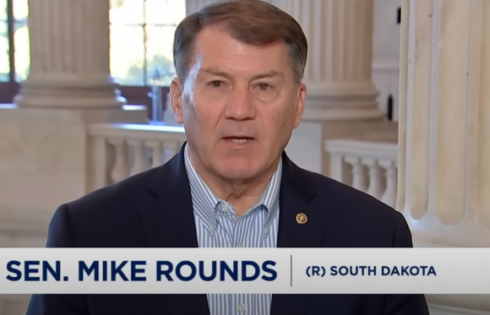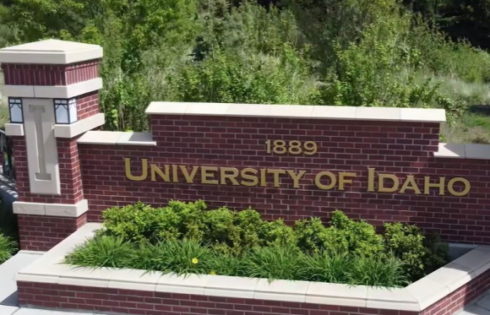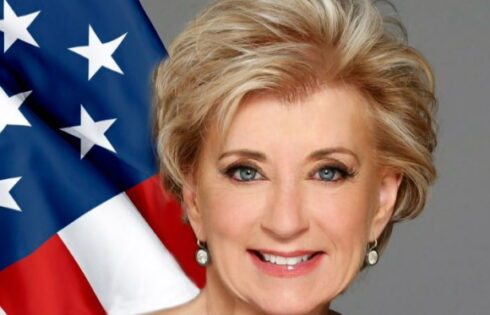
• A University of North Carolina tennis star is seeking an injunction in her federal lawsuit against the NCAA over access to prize money.
• The injunction could affect more than 100 student-athletes now blocked from accepting prize money, according to a court filing Tuesday from Reese Brantmeier.
• The court document cites inconsistent NCAA rules involving student athletes’ ability to collect money related to their sports.
A University of North Carolina tennis player is seeking a preliminary injunction against the NCAA in her lawsuit over students’ access to prize money. At stake in her case is nearly $49,000 for a third-round finish in the 2021 US Open.
Reese Brantmeier’s lawyers filed a motion Tuesday in U.S. District Court seeking the injunction. The court document estimates the injunction could affect more than 100 current student-athletes.
“Brantmeier brought this action on behalf of a class of similarly situated National Collegiate Athletic Association (‘NCAA’) Division I scholar-athletes competing in Individual Sports who intend to participate in non-NCAA athletic events that award Prize Money,” Brantmeier’s lawyers wrote. “The NCAA’s long-standing amateurism rules prohibit Student-Athletes who compete in Individual Sports from accepting ‘Prize Money’ awarded for their performance in non-NCAA competitions.”
“With certain exceptions, a Student-Athlete forfeits eligibility for intercollegiate competition if they accept Prize Money,” the court filing continued. “If they lose their eligibility, Student-Athletes can also lose their education scholarships to an NCAA member institution.”
“Plaintiff and the Proposed Class seek injunctive relief from the remnants of the NCAA’s archaic Prize Money rules so current and future Student-Athletes who complete in Individual Sports can retain Prize Money earned for their performances in non-NCAA competitions without affecting their NCAA eligibility,” the tennis player’s lawyers added.
The court filing noted recent changes in NCAA rules for payment of student athletes, including payments related to use of an athlete’s name, image, or likeness.
“In recent years, the NCAA’s rules against Student-Athlete compensation have come under fire,” Brantmeier’s lawyers wrote. “As a result of recent litigation, the NCAA’s amateurism rules prohibiting educational-related compensation, NIL related compensation, and certain other benefits beyond ‘cost of attendance’ scholarships have been struck down or suspended.”
“In December 2023, NCAA President Charlie Baker proposed shifting the governance of college sports to allow high-revenue athletic programs to directly pay their Student-Athletes through annual trust funds — i.e., direct pay-for-play,” the court filing continued. “Unfortunately, and for reasons that are unclear, the NCAA’s suspension of its prohibitions related to certain Student-Athlete compensation has not been extended to include its rules related to the acceptance of Prize Money earned in non-NCAA competitions.”
“Going back decades, the highest and most prestigious levels of non-NCAA competition in Individual Sports have been open to college Student-Athletes, including, but not limited to, the Olympics, the U.S. Open Tennis Championships, the U.S. Swimming Championships, the U.S. Open Golf Championships, among others. These competitions include prodigious Prize Money for individual performances. But the NCAA’s arbitrary rules prevent Student-Athletes from accepting Prize Money, eliminating the earning ability of Student-Athletes competing in Individual Sports,” Brantmeier’s lawyers wrote.
The court filing details Brantmeier’s challenge in gaining NCAA certification of her amateur status after she enrolled at UNC in 2022. Only after she made a “charitable contribution” of $5,100 was she cleared to play at the university in January 2023.
Brantmeier’s lawyers describe similar issues for a University of Texas women’s tennis player and a “national-level competitor” in women’s bowling at the University of Nebraska.
“The NCAA’s Prize Money Rules are causing real and tangible harm to Individual Sports Student-Athletes and not the athletes who have an opportunity to earn millions in NIL deals playing college football and basketball,” the court filing argued. “The remaining Prize Money Rules constrain lower-earning Individual Sport athletes – particularly women – who have an even lower earning potential in professional sports and thus higher exposure to the effect of a career ending injury.”
“As a result of the NCAA’s rules, Brantmeier and all other similarly situated Division I Student-Athletes have been and will remain forced to forfeit Prize Money earned through their success in non-NCAA athletic events, and will also be subject to the NCAA’s arbitrary auditing of expenses submitted in conjunction with such rules,” Brantmeier’s lawyers wrote.
“The Prize Money Rules in the college education market function as a systematic boycott of any individual who has, at some point in their life accepted Prize Money exceeding the NCAA’s arbitrary limits,” the court filing added. “The NCAA uses its market power to enforce the Prize Money Rules, which require NCAA colleges to engage in a group boycott of players deemed to be out of compliance with the rules. The economic effect on athletes is obvious: they lose the opportunity to acquire a college education in exchange for athletic performance.”
Brantmeier’s legal team also pointed to other cases that showed the NCAA’s willingness to allow some athletes to maintain amateur status after collecting six-figure sums. Swimmer Katie Ledecky competed for Stanford after winning $115,000 in the 2016 Olympics. Joseph Schooling swam for the University of Texas after the Singapore Olympic Committee paid him $740,000 for his gold-medal performance, according to the court filing.
This article was originally published July 3 by the Carolina Journal.
IMAGE: GoHeels.com
Like The College Fix on Facebook / Follow us on Twitter




Add to the Discussion